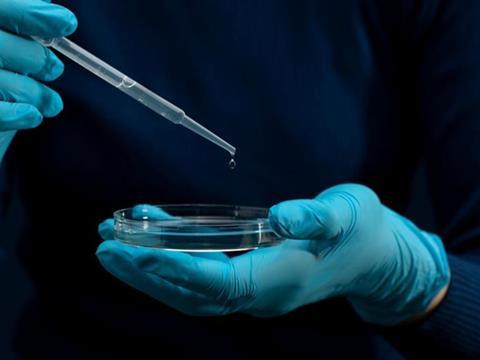
Neste and Eppendorf have entered a strategic partnership to replace fossil feedstock with a renewable alternative in the production of plastic tubes, filter pipette tips, and other consumables for the life science industry.
Eppendorf Consumables BioBased is a new portfolio of consumables featuring Eppendorf Tubes with screw caps and epT.I.P.S. BioBased filter pipette tips, made of certified polypropylene based upon renewable raw materials.
The tubes are manufactured using Neste RE, a feedstock made from raw materials such as cooking oil, while the screw caps and pipette tips are made in collaboration with other suppliers. Renewable content is allocated to each product using a mass balance approach.
According to the companies, Eppendorf Consumables BioBased offers the same performance as plastic consumables made with fossil oils and meets the requirements for scientific experiments.
A transition into renewable feedstock is hoped to cut down on the life science industry’s ‘substantial’ consumption of single-use plastics and lead to further uptake of renewable materials in the laboratory and scientific research sectors. In turn, this expansion hopes to encourage defossilization and reduce climate impact by offering practical solutions.
Going forward, the partners aim to address pressure points across the value chain and chemically recycle the lab consumables themselves, as well as enable the incorporation of recycled content during production.
“We are thrilled to be joining forces with Neste to bring renewable plastics into the lab,” said Brigitte Klose, global marketing manager for Consumables at Eppendorf. “At Eppendorf, we are committed to supporting our customers in their efforts to become more sustainable, and by combining our expertise with Neste’s, we have been able to deliver high-performance sustainable plastic consumables that can help the scientific community to reduce its carbon footprint.
“This collaboration with Neste is another substantial step forward in our strive towards sustainability, and we look forward to continuing pioneering together in the development of renewable alternatives.”
Maria Carcolé, head of Brand Owner Management at Neste Renewable Polymers and Chemicals, continued: “Laboratory applications come with high quality requirements for the materials used. The cooperation with Eppendorf shows that despite these requirements, a transition to more sustainable materials is already possible. It just takes will and cooperation to get there.”
Other recent applications of Neste RE include the production of PET resin for bottle production in a collaboration between Neste, Suntory, ENEOS, and Mitsubishi Corporation.
The feedstock is also being used to produce packaging for JCCU brand CO-OP’s dried seaweed slice packaging as Neste joins forces with Mitsui Chemicals and its subsidiary, Prime Polymer. The pack is said to be the first made with renewable plastics in a mass balance approach to receive the Japanese Eco mark.
If you liked this article, you might also enjoy:
The L’Oréal approach to packaging sustainability
The way we talk about plastic needs to change – here’s how to get it right
What steps is Apple taking to make its packaging more sustainable?














No comments yet